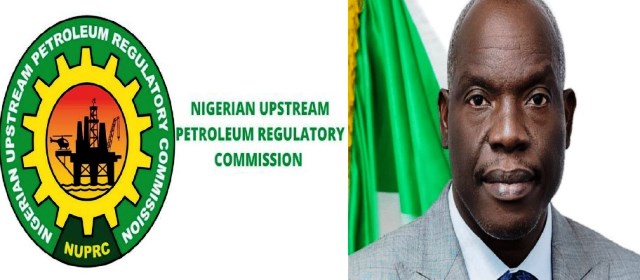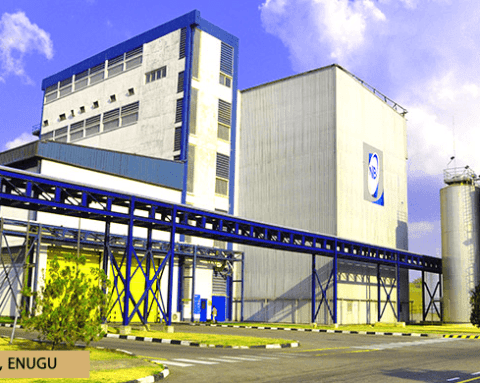The Nigerian Upstream Petroleum Regulatory Commission (NUPRC) has refuted allegations that it violated the licensing guidelines during the 2024 Oil Block Licensing Round.
NUPRC explained that the entire process was conducted in strict compliance with the Petroleum Industry Act (PIA) and its own licensing guidelines. The upstream regulator clarified that it ensured that the bidding exercise was transparent, competitive, and technology-driven.
Join our WhatsApp ChannelNUPRC stated this in a statement while reacting to allegations that the process was “illegal.”
According to reports, there were claims in some quarters that a particular company was registered a few days before the commencement of bidding and was improperly awarded oil blocks.
Reacting, the NUPRC debunked the claim in a statement, saying that “no violations of oil licensing guidelines occurred during the 2024 Oil Block Licensing Round.”
The NUPRC Chief Executive, Gbenga Komolafe, in a statement on Thursday, explained that the factors that determine the eligibility of a company to bid and win oil blocks are not how long it has been in existence before the bidding exercise, but the technical expertise, financial strength, and legal compliance.
READ ALSO: Nigeria Govt To Revive Marginal Field Bid Round To Fuel Domestic Energy Boost
According to him, “The bid guidelines do not restrict participation based on the age of a company’s incorporation; instead, eligibility was determined by a rigorous assessment of technical expertise, financial strength and legal compliance.”
Komolafe stressed that the technical and financial capacity of a bidder is determined based on the background and track record of its promoters, affiliated businesses, or parent organisations, not merely the date of incorporation of the bidding entity.
“This approach allows newly formed Special Purpose Vehicles (SPVs), when backed by credible and experienced industry players, to compete effectively and fairly,” he stated.
In a statement issued by the NUPRC Public Affairs and Corporate Communications Unit, the Commission explained that the 2024 Licensing Round involved multiple stages, including prequalification, technical evaluation and commercial bid evaluation adding that applicants were mandated to prove their financial capability, technical expertise and legal compliance by submitting detailed documentation, such as incorporation papers, tax clearances and proof of operational experience.
“The pre-qualification window was open with no restrictions on company age. The commercial bidding phase was carried out digitally using encrypted technology to ensure the integrity and confidentiality of the data.
“The results were announced transparently and publicly, featuring live televised sessions that were observed by stakeholders, including the Nigerian Extractive Industry Initiative (NEITI) and relevant government ministries.
“The commercial bid evaluation was conducted using a transparent, digital and point-based assessment system, which included Signature Bonus, Proposed Work Programme Financial Commitments and Work Performance Security,” Komolafe stated.
REad ALSO: Tinubu Hails Shell, Partners’ $5bn Investment In Nigeria’s Oil Sector
He further stated that indigenous oil companies aggressively participated and outbid some national and international players, “reflecting strong investor confidence following the enactment of the PIA 20211.”
“At the conclusion of the process, NEITI publicly commended the transparency of the exercise after witnessing the entire procedure. The report praised NUPRC for significant improvements in the 2022-2023 Mini Bid Round and the 2024 Licensing Round, emphasizing professionalism, transparency and inclusivity.
The Commission insisted that the 2024 Oil Block Licensing Round adhered fully to all statutory provisions and guidelines, with no discrimination or corrupt practices involved. “The NUPRC remains committed to transparent regulation aimed at optimizing Nigeria’s hydrocarbon resources and attracting investment under President Bola Ahmed Tinubu’s administration.”
Also, the Commission debunked a publication that it said “incorrectly” claimed that 40 oil block licences will expire on 27 June this year. It said the report, based on a document downloaded from the NUPRC website, misinterpreted the facts about the oil mining licences.
It clarified that the 40 Petroleum Prospecting Licences (PPLs) referenced in the publication are at different stages of exploration, appraisal and pre-development. “Each stage has distinct regulatory requirements and timelines. Several licensees have formally applied to convert their PPLs into Petroleum Mining Leases (PMLs), as required by the Petroleum Industry Act (PIA) 2021. These applications are currently under review,” It stated.
READ ALSO: Stakeholder Collaboration Key To Boosting Oil Production In Nigeria – NUPRC Boss
It explained that many of the operators have already fulfilled their minimum work programme obligations under Section 78 of the PIA, qualifying them for extensions. “Production commencement is not the sole measure of compliance, NUPRC emphasised.
The Commission reaffirmed its dedication to preserving an open dialogue while preserving a robust and open regulatory framework that serves the interests of all Nigerians.
It emphasised how crucial it is to make sure that reports on the Commission’s operational activities are fact-checked, contextual, and in line with the PIA, 2021’s statutory provisions and regulations.












